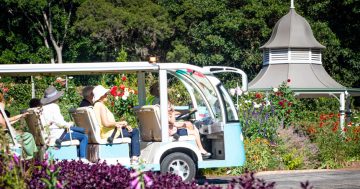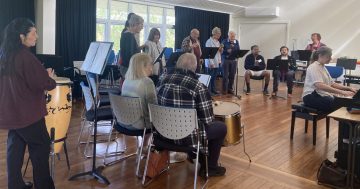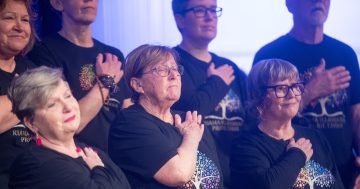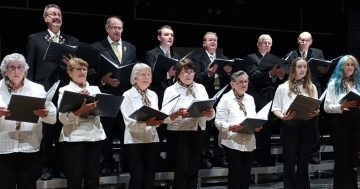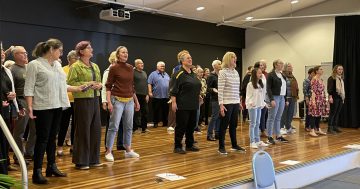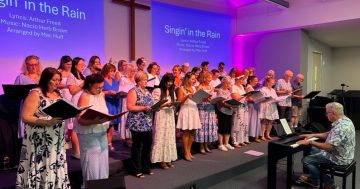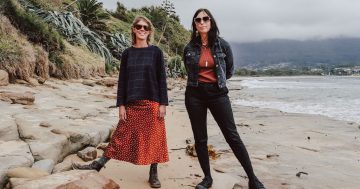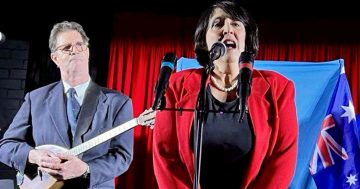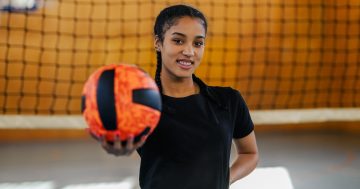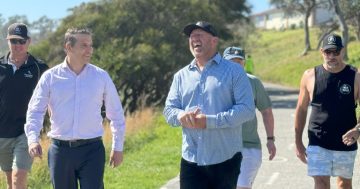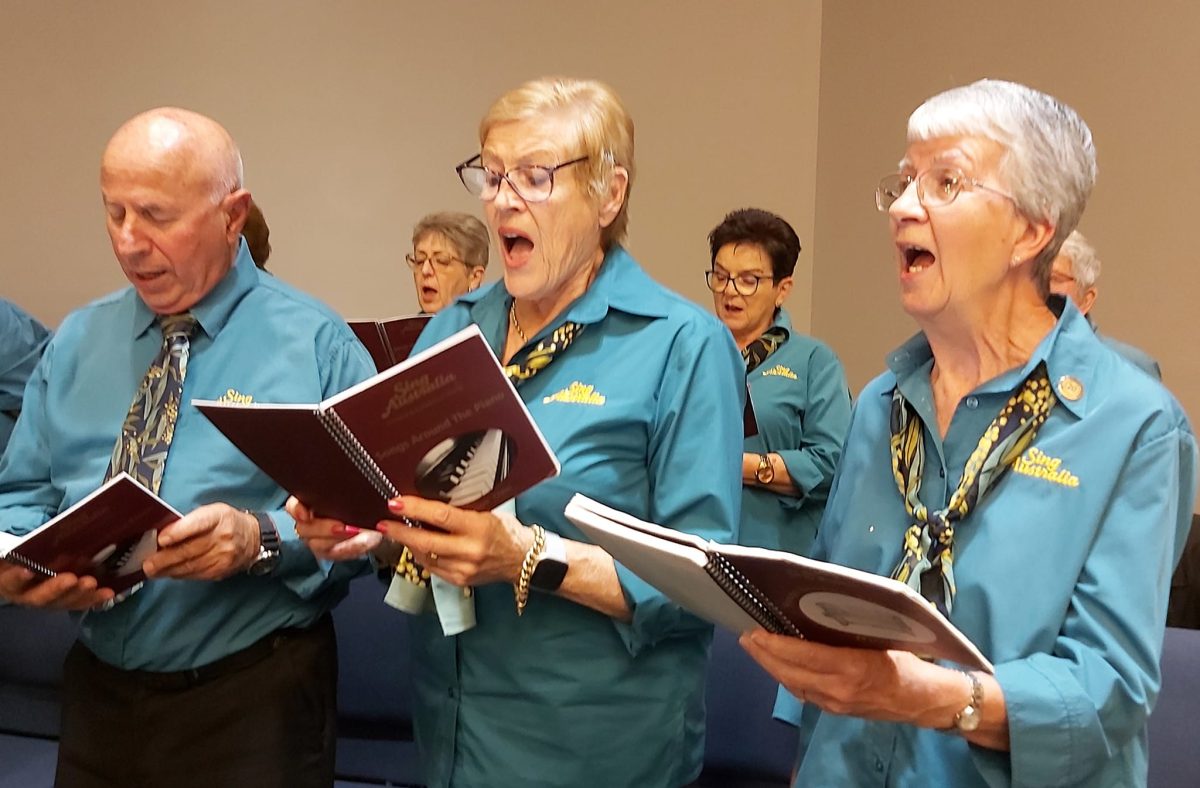
Sing Australia’s Wollongong branch meets every Wednesday night. Photo: Sandra Ford.
They’re not a choir, just a bunch of people who love to sing, and the members of Wollongong’s Sing Australia group may be getting more than they bargained for, just by following their passion.
Recent research by the University of Exeter has found that music plays a valuable part in protecting brain health, particularly for older adults.
Professor of dementia research at the university, Anne Corbett, has found that promoting musical education would be a valuable part of public health initiatives to promote a protective lifestyle for brain health, as would encouraging older adults to return to music in later life.
Sing Australian Wollongong leader Sue Swift agreed that music, particularly singing in a group, was great for the mind and soul.
She’s always felt singing boosted her energy levels and kept her mind active.
“It’s very good for breathing and mental health,” Sue said.
“Sometimes you don’t feel like going, because you’re tired or it’s raining, but once you get there and you sing, you leave on a high. It really cheers you up and releases any tension you may be feeling.”
Sue said a singing session was like a gym workout for the brain.
“The endorphins kick in and make you feel so much better, you feel really good,” she added.
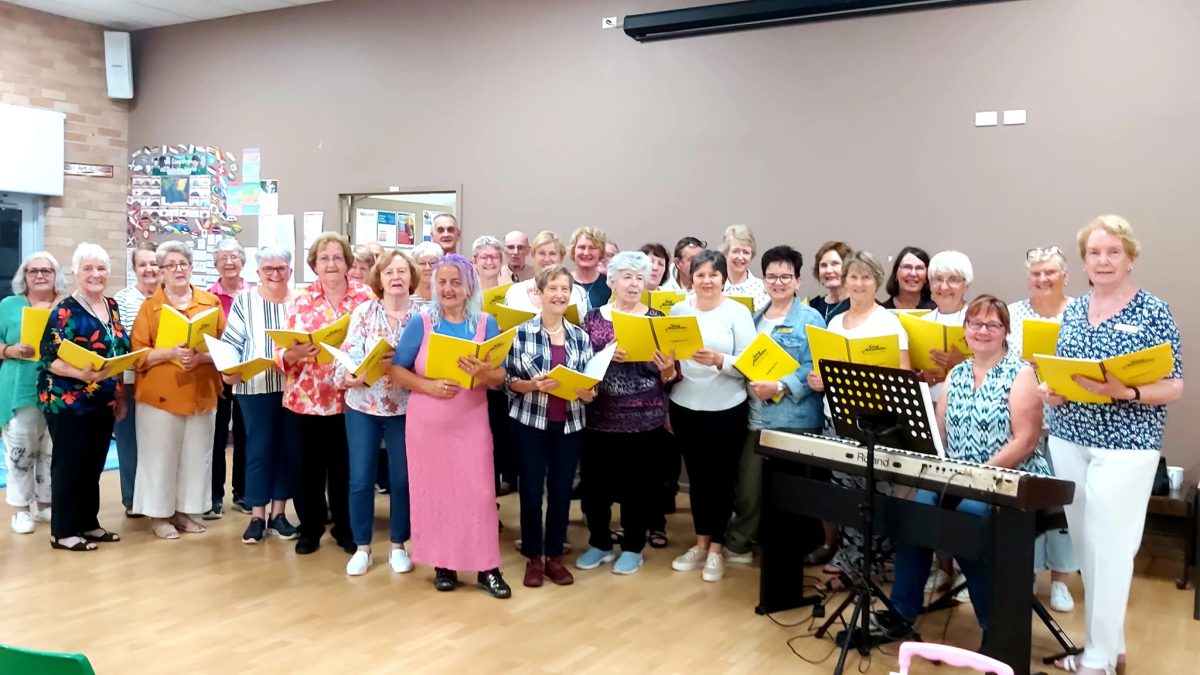
Research has found that returning to music later in life can be good for maintaining a healthy mind. Photo: Sandra Ford.
Mollymook-based music education advisor and researcher Dr Tina Broad has run The Glorious MUDSingers community choir for almost 20 years and said the latest research was “particularly exciting”.
“It asks people to think about playing musical instruments and choir singing as general lifestyle boosts for longevity, in the same way we think about good diet and regular exercise,” she said.
“For me, that says everything about how powerful the mounting evidence is for the positive effects of active music-making on our overall good health.”
Dr Broad said study participants who had been active music-makers for a long time seemed to be “best-equipped to stave off cognitive decline into older age”.
“It’s not a panacea of course, but singing or playing a musical instrument – or both – can help provide protection for our brain health as we age.
“Passive listening to music is enjoyable, but it doesn’t have the same potency for our brains as when we actively sing or play. That fires both hemispheres of the brain like very little else. It’s huge!”
She said “remarkable things happen when people sing together”.
“For example their stress hormone, cortisol, reduces and their heartbeats even synchronise as a group. There’s a phenomenon called ‘bridging and bonding’ that happens in choirs – people’s differences fade away under a common goal because everyone has a place and a role to play in the overall sound, and strong friendships form.”
Sue said the Wollongong Sing Australia group was a fantastic way to meet people and make lifelong friendships.
She joined the group in January 2005 and said the group was ideal for her because there’s no audition process, no practising, you just turn up and sing.
“At first I felt nervous and very shy because I didn’t sing, but everyone was so welcoming,” she said.
“We sing a variety of songs from the 1920s to modern day. Not Taylor Swift, but Cindy Lauper, and ABBA, Queen, The Beatles – a real mixture.
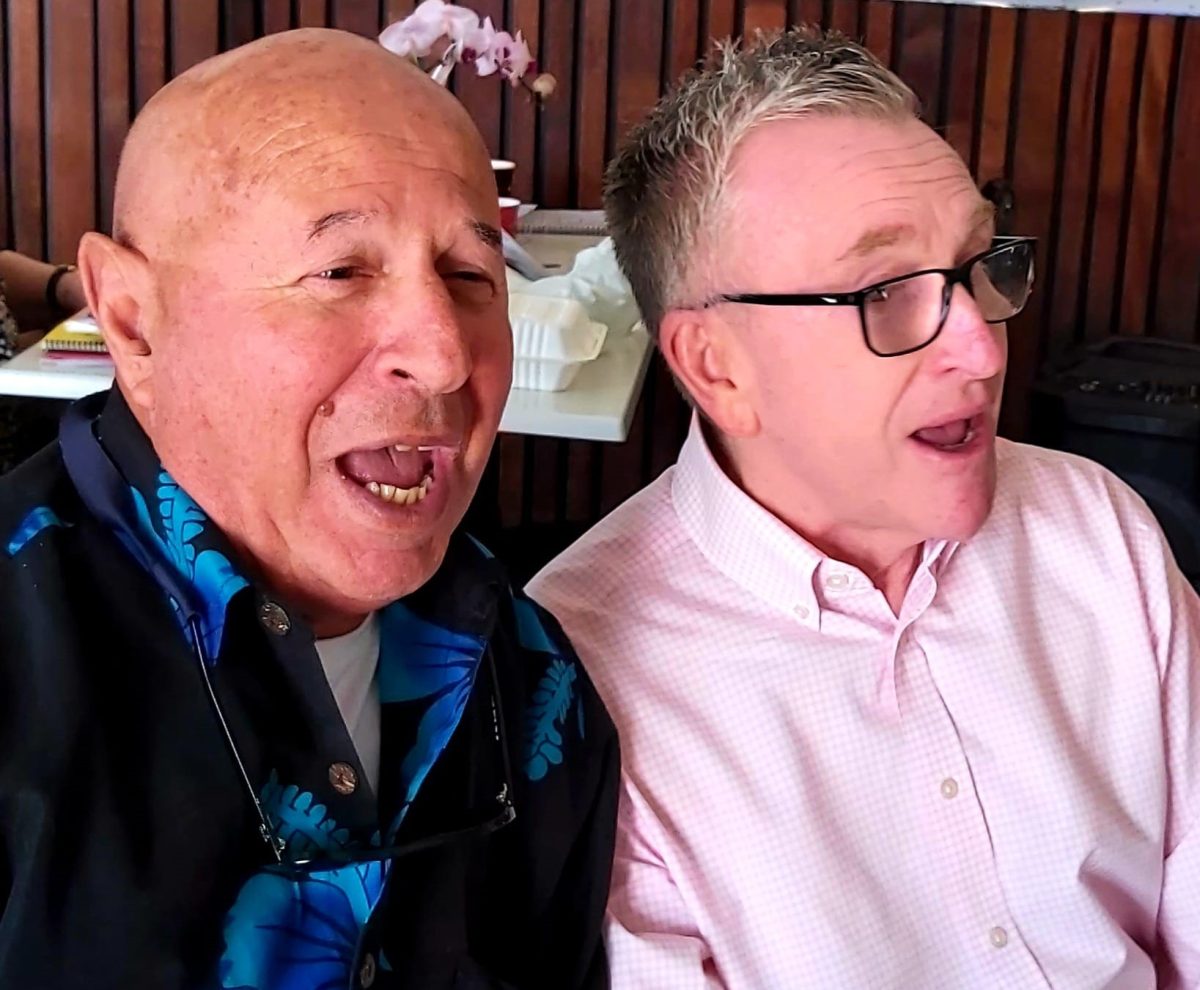
Sing Wollongong encourages men to join in. Photo: Sandra Ford.
“It’s just about turning up and singing from the heart. There’s nothing to do with how well we sing, and if you don’t know the words you just mime. Obviously, the longer you do it, the better and more confident you get.”
Sue said the group helped her deal with the loss of her husband.
“I wouldn’t have got through without them. “I’ve made some really lovely friends who have supported me and I’ve been supportive to them,” she said.
Sing Australia has groups around the country that sing from the same songbooks and members are welcome to join other groups when they travel. They also have a yearly gathering which this year will be held in Adelaide in August.
Around 20 to 30 members make up the Wollongong group which meets at the St Therese school hall in Powell Street West Wollongong from 7:30 – 9:30 pm every Wednesday.
They’re often invited to sing at the Wollongong City Council citizenship ceremonies, Anzac Day and Christmas events.
Singers of all ages are most welcome to join in.
“We’d love to see more men,” Sue said.
“We’ve got six now and they’re real characters. The camaraderie between the men is fantastic. Every now and then we get them up to sing Love Me Tender and they love it – they’re like peacocks with their feathers up.”
Dr Broad said a well-run group singing session could provide a safe and secure place where social connection could happen across all sorts of boundaries.
“I am always astonished and very, very moved when singers tell me choir rehearsal is the highlight of their week. And we know it’s helping supercharge our brains. How good is that?!”








